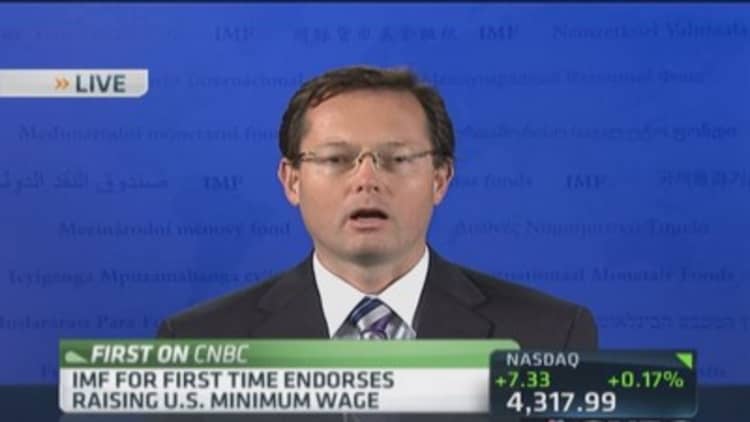The U.S. labor market has undoubtedly improved in the last five years—even if it remains tight. So what are the unemployed doing, and not doing, in order to find work?
The U.S. unemployment rate currently stands at 6.3 percent, after reaching 10 percent in October of 2009—a record high over the last 10 years.
Meanwhile, the number of long-term unemployed, or those out of work for 27 weeks or more, remains at 3.4 million people, or 34.6 percent of the jobless. And there are the millions of people who are said to have given up looking for work.
Read More Jobs are available but Americans lack skills
When it comes to finding employment, the Internet remains the focus of job searches, according to a new online survey from Express Employment Professionals, a full-time and part-time staffing firm.
The survey of 1,500 unemployed adults aged 18 or older who are capable of working shows that all use the Internet in some way: (click here for full results)
- 53 percent said visiting or researching online job boards.
- 44 percent said visiting a prospective company's website.
- 43 percent said posting resumes on major online job boards.
- 41 percent said entering search terms directly into a search engine.
- 33 percent said using resources at the state employment office.
- 31 percent said going to job or career fairs.
- 29 percent said visiting social networking sites.
- 28 percent said visiting or researching websites that provide resume tips.
Who's hiring

But finding a job requires a lot more than submitting a resume online, said Bob Funk, chairman and CEO of Express. "There's a misconception that using the Internet is the only way to find work," he said.
"People really need to go out in person, beat the pavement so to speak, and make face-to-face connections," Funk added. "It's difficult to do, but it's a game-changer when it comes to finding a job."
Read More
Funk said that it's the smaller firms rather than larger companies that are doing much of the hiring, and those are the types of companies that prefer meeting a job candidate in the flesh. He emphasized the need for job seekers to network with others in the field they want to enter.
Time looking
While 90 percent of those surveyed said they are working hard to find a job, the amount of time they spend doing so varies greatly.
Read More Most economists say the Fed is wrong about growth
The survey revealed how many hours people spent looking for work in the week prior to the survey:
- 14 percent said zero hours.
- 22 percent said one to five hours.
- 21 percent said six to 10 hours.
- 21 percent said 11 to 20 hours.
- 12 percent said 21 to 30 hours.
- 9 percent said 31 or more hours.
Interviews hard to get
The survey also found out that interviews are hard to come by:
- 46 percent reported not having gone on any job interviews in the prior month.
- Among those unemployed for more than two years, 71 percent reported not having gone on any interviews in the prior month.
- 23 percent said their last interview was in 2012 or before.
Relocating? No, thanks
For many, moving to another state to find work, or getting more education, is not an answer:
- 44 percent are "not at all willing" to relocate to a new city/town for a job.
- 60 percent are "not at all willing" to move to another state to find work.
- 64 percent have no plans to go back to school to make themselves more marketable.
- 7 percent are currently enrolled in classes, and 6 percent have already attended classes or earned a new degree.
—By CNBC's Mark Koba


